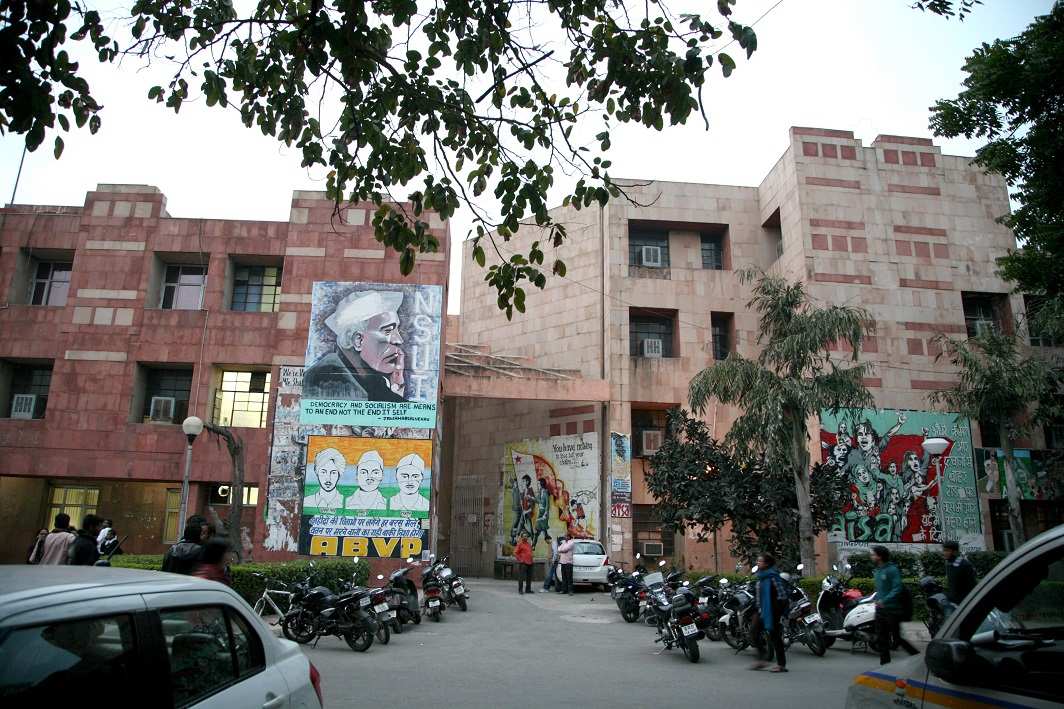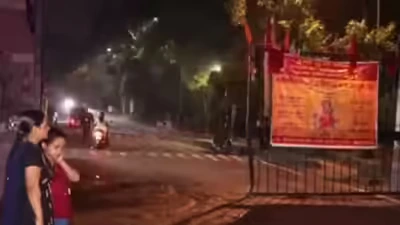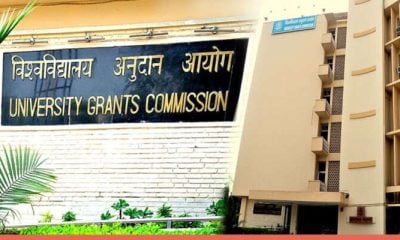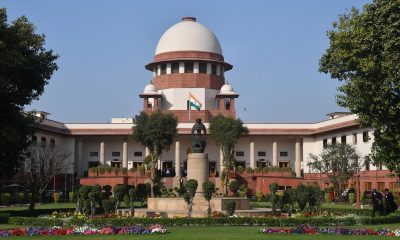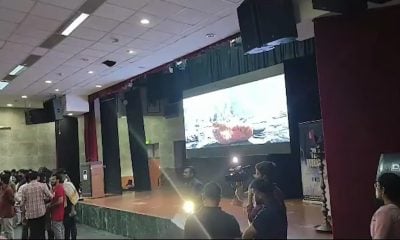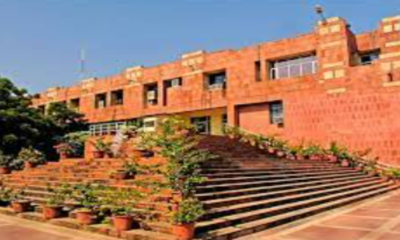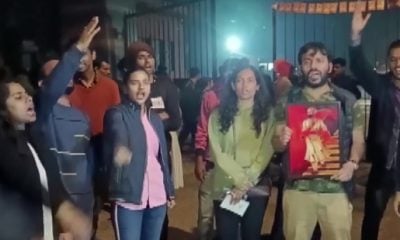[vc_row][vc_column][vc_column_text]UGC’s decision to drastically cut the number of seats in MPhil and PhD courses will deplete JNU’s research base and affect education and society in ways policy-makers cannot at present contemplate
By Meha Mathur
Even as the Kanhaiya Kumar issue was cooling off within the JNU campus, the premier central university of the country was hit by a regulation that it will find difficult to circumvent. The new, strict UGC guideline will result in a drastic reduction in the number of MPhil and PhD seats in various streams.
The guideline of July 2016 stipulates that no professor can be a guide to more than three MPhil and eight PhD students at any point of time. This means that admissions to the forthcoming batch will depend on how many students are already enrolled under various professors—research work taking as many as five or six years. Then, there are programmes in which there can be no admission this year.
Here’s an overview of seat reduction in various schools, for which JNU is famed:
- School of Social Sciences: 232 (present strength 330)
- School of International Studies: 141 (present strength 232)
- School of Language, Literature and Culture Studies: 73 (present strength 227)
- No admission in MPhil and PhD this year at the Centre for Media Studies, Centre for African Studies, Centre for East African Studies, Centre for Indo-Pacific Studies, Centre for the Study of Discrimination and Exclusion
On the face of it, the UGC move to bring down the student-teacher ratio at research level seems very rational. After all, when international rankings of educational institutions are released, the student-teacher ratio and quality of teaching are important criteria, and cramped classrooms can’t aspire to figure on these lists. “No Indian institute among top 200 world universities, experts worried”, read a Hindustan Times headline in September 2016 when the Times Global rankings were released.
Excellence vs inclusivity
But then, there is more to it than meets the eye. Academics from JNU and Delhi University have voiced concerns at the long-term harm it will cause. The first issue that comes to mind is its impact on inclusivity. JNU is one of the few universities offering quality higher education and research opportunities at affordable cost. By limiting the number of seats, the government is shutting the door of opportunity on the poor.
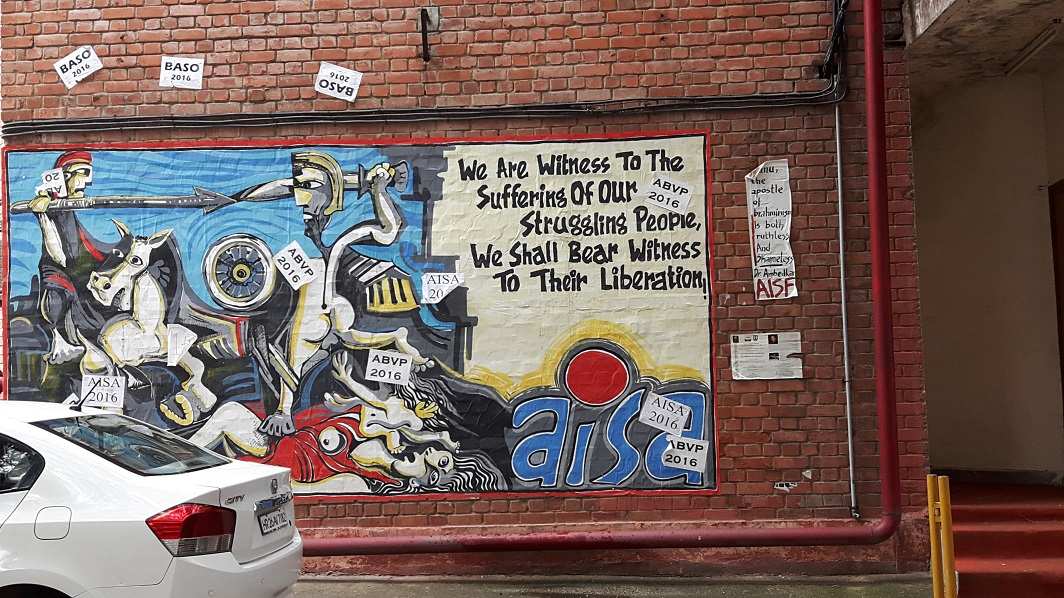
Posters and graffiti in JNU
Ajay Gudavarthy, associate professor of political science at JNU, says the move has been inspired by the aim of maintaining parity with global universities, but it can’t be feasible in a country of India’s size, where aspirations of people are now high. “The logic is fine, but you don’t have too many universities like JNU which can fulfil those aspirations of poor. This move will close opportunities for the disadvantaged youth of India.”
Ayesha Kidwai, professor at Centre of Linguistics in JNU, says this will push higher education out of the reach of poor. “So many youngsters come to JNU because they can avail of the opportunity by paying the same fee as the rich. Now, a good, affirmative action has been ended through this regulation. Instead of spreading such models of education, we are shrinking these options.”
Depleting research base
Then again, if you reduce the number of research scholars, who will teach at the level of higher education?
In a UGC report of 2008 titled “Higher Education in India: Issues Related to Expansion, Inclusiveness, Quality and Finance”, the then UGC chairman S Thorat had written about the then 11th Five Year Plan: “The 11th Plan recognised that the availability of adequate and qualified faculty is a pre-requisite for quality education. It also recognised that due to restrictions on the recruitment of the faculty in the state universities and colleges in 1980’s and 1990’s by various states, we faced serious problems related to the availability of faculty.” It seems that wisdom has again been lost on the policy makers.
Kidwai says that the national enrolment for PhDs is 0.5 percent. In all central universities it’s 3.2 percent, whereas in JNU it’s 62.5 percent. Now, this will come down to 15 to 20 percent. “Do you want MAs to teach in colleges?” she asks.
Abha Dev Habib, who teaches at Miranda House, Delhi University, says that for all the complaints that the research output is not good, we are reducing public money in education and the research grants have been constantly decreasing since 2013. The number of research proposals that have received grants has also come down and many institutions are feeling the pinch. Teachers in higher education are seen as a financial liability, because once they are recruited, they will have to be promoted, too. It’s clear, therefore, that all means are being adopted to dissuade research and recruitment in public institutions of higher learning.
The logical extension of this is that private universities will get more and more room to operate in research space, too. But as Gudavarthy points out, it will leave the poor out of the ambit of research. “About 50 percent of the students we have are poor. They will have to go back.” They might have to compromise on their dreams by joining second-rung universities, because private universities are outside their means.
What are the options?
Despite the Delhi High Court having already dismissed a petition from students for a stay on the UGC strictures on certain technical grounds, Siddiqui says the academics will not give in and that they will seek further legal recourse. But with the admission season already commencing, the future of at least the current batch of admission-seekers stands jeopardised.
The question that needs to be addressed in the long run is, what alternative does the government intend to provide to those who stand to lose? Are other universities on the anvil, offering research facilities on a par with JNU? Or does the government want to wean away youth from research and have them take up vocational and job-oriented courses only?
Move smacks of anti-intellectualism
Another dimension of the limit imposed on research students is the issue of politicisation. Abha Dev Habib puts it bluntly when she says that the government is disturbed by social movements. She says that JNU has a large number of research students who spend much more time on the campus than MA students, and there are more chances of their getting politicised. The government wants to minimise those chances. Kidwai agrees, saying this move smacks of “anti-intellectualism”.
The seat reduction has hit international studies and social sciences—disciplines associated with asking questions and with reasoning, in particular. Gudavarthy adds: “They don’t want a critical society. The focus is more on technology and vocational education. We will have a dearth of public intellectuals that way.”
Perhaps the move is also part of the shift away from research culture. After all, the Prime Minister has already set the agenda with “Harvard vs hard work”. There’s nothing wrong in having people respect vocational professions. But it takes all kinds of people to make this world. Pushing the pendulum to the other extreme will be counterproductive.
At this juncture, the questions need to be answered by policy-makers.
Photos by Anil Shakya and Meha Mathur[/vc_column_text][/vc_column][/vc_row]
